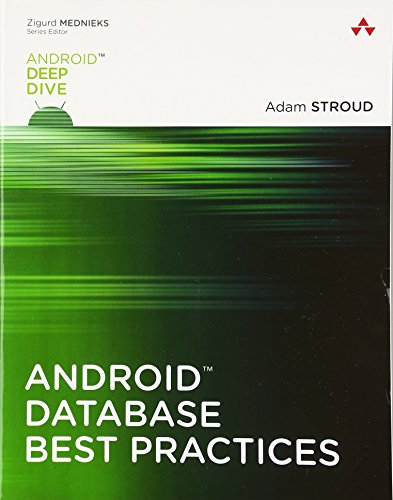

Most ebook files are in PDF format, so you can easily read them using various software such as Foxit Reader or directly on the Google Chrome browser.
Some ebook files are released by publishers in other formats such as .awz, .mobi, .epub, .fb2, etc. You may need to install specific software to read these formats on mobile/PC, such as Calibre.
Please read the tutorial at this link: https://ebookbell.com/faq
We offer FREE conversion to the popular formats you request; however, this may take some time. Therefore, right after payment, please email us, and we will try to provide the service as quickly as possible.
For some exceptional file formats or broken links (if any), please refrain from opening any disputes. Instead, email us first, and we will try to assist within a maximum of 6 hours.
EbookBell Team

5.0
40 reviews Battle-Tested Strategies for Storing, Managing, and Sharing Android Data
“Android™ Database Best Practices goes well beyond API documentation to offer strategic advice about how to handle data in an Android application and the tools needed to develop productively. This arms the developer with a trove of solutions to nearly any problem an application may face involving data. Mastering the concepts in this book are therefore essential for any developer who wants to create professional Android applications.”
–Greg Milette, Android developer, Gradison Technologies, Inc.
This is the first guide to focus on one of the most critical aspects of Android development: how to efficiently store, retrieve, manage, and share information from your app’s internal database. Through real-world code examples, which you can use in your own apps, you’ll learn how to take full advantage of SQLite and the database-related classes on Android.
A part of Addison-Wesley’s Android™ Deep Dive series for experienced Android developers, AndroidDatabase Best Practices draws on Adam Stroud’s extensive experience leading cutting-edge app projects.
Stroud reviews the core database theory and SQL techniques you need to efficiently build, manipulate, and read SQLite databases. He explores SQLite in detail, illuminates Android’s APIs for database interaction, and shares modern best practices for working with databases in the Android environment.
Through a complete case study, you’ll learn how to design your data access layer to simplify all facets of data management and avoid unwanted technical debt. You’ll also find detailed solutions for common challenges in building data-enabled Android apps, including issues associated with threading, remote data access, and showing data to users. Extensive, up-to-date sample code is available for download at github.com/android-database-best-practices/device-database.
You will